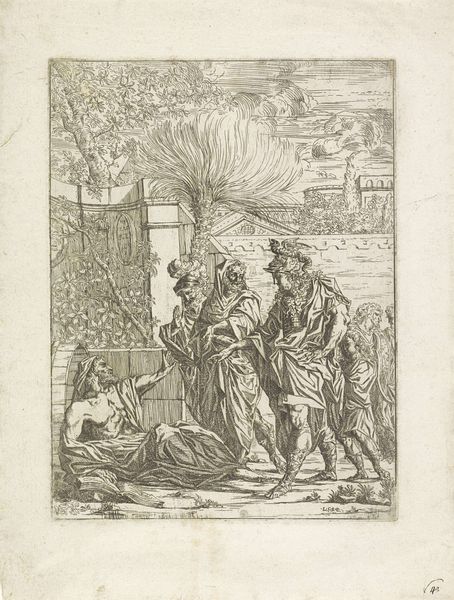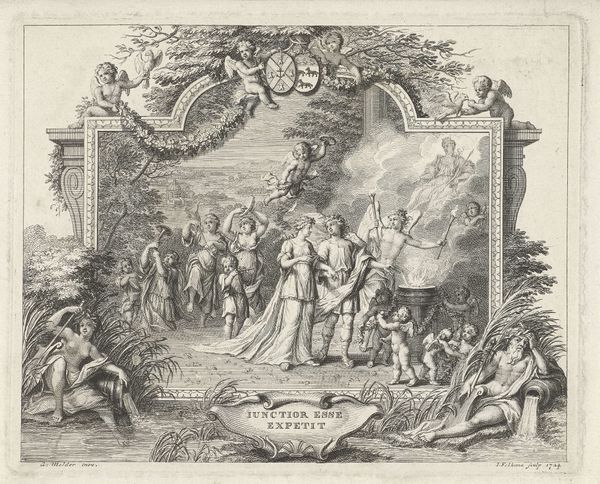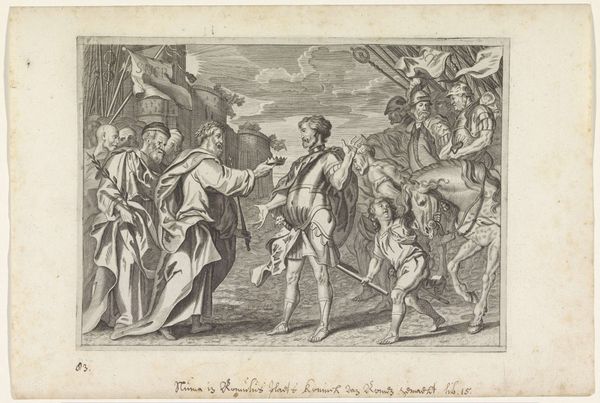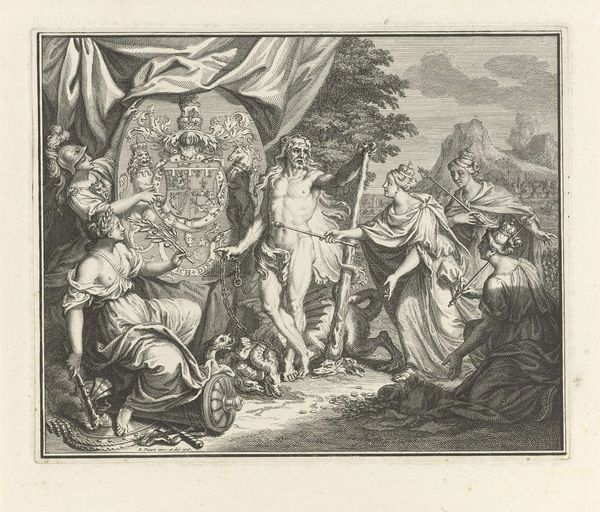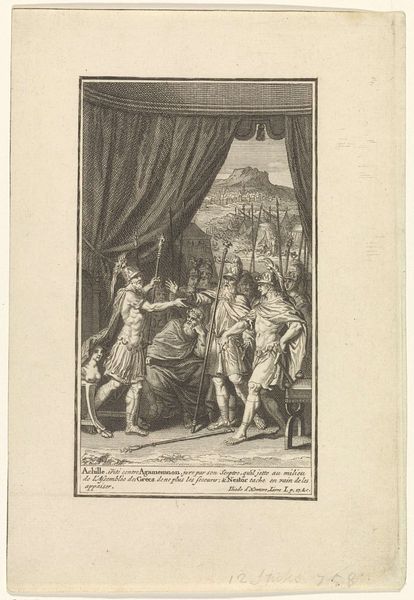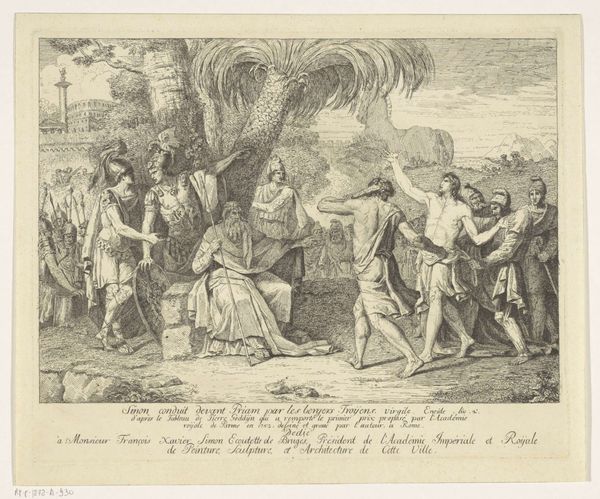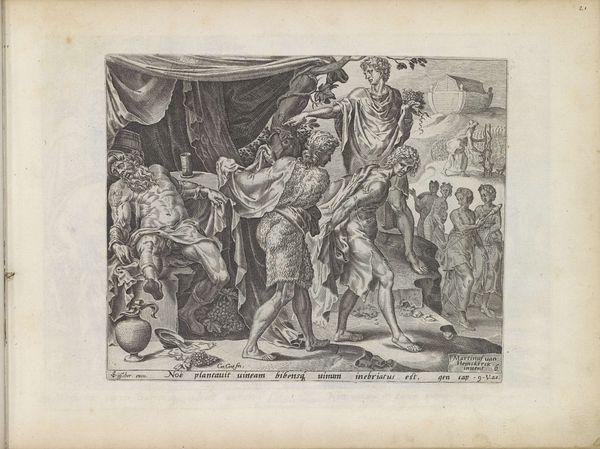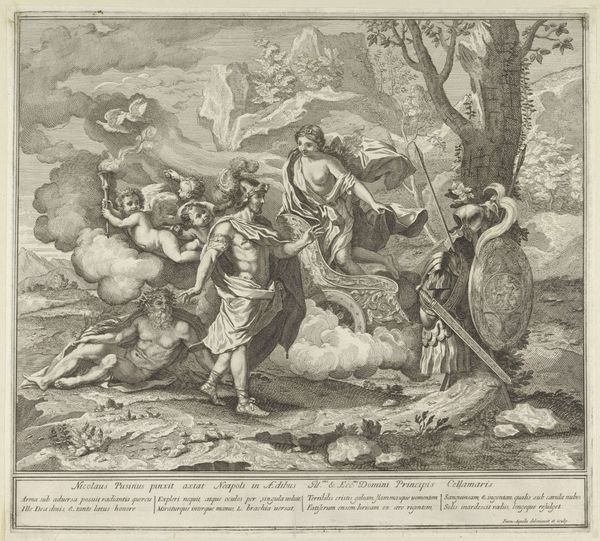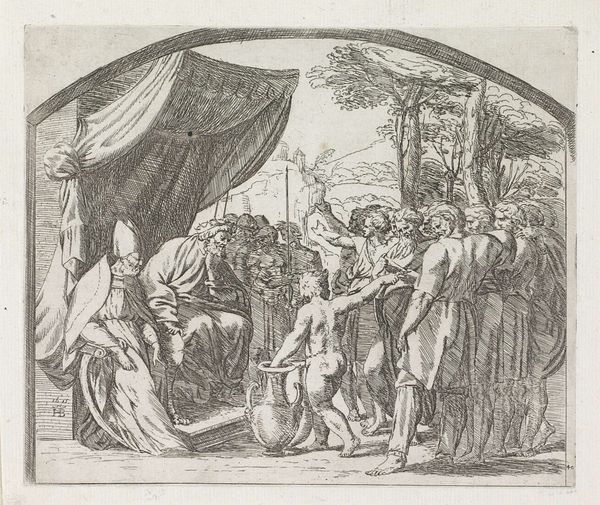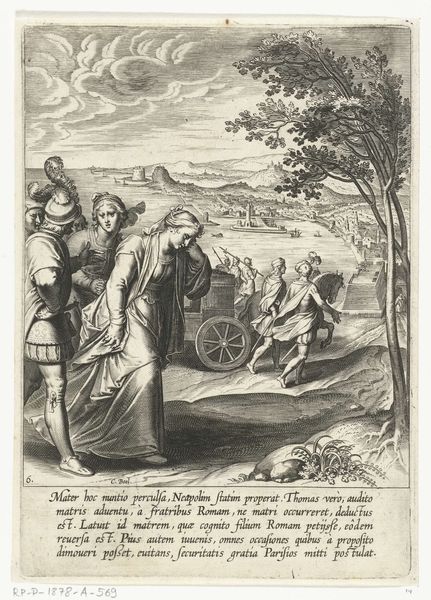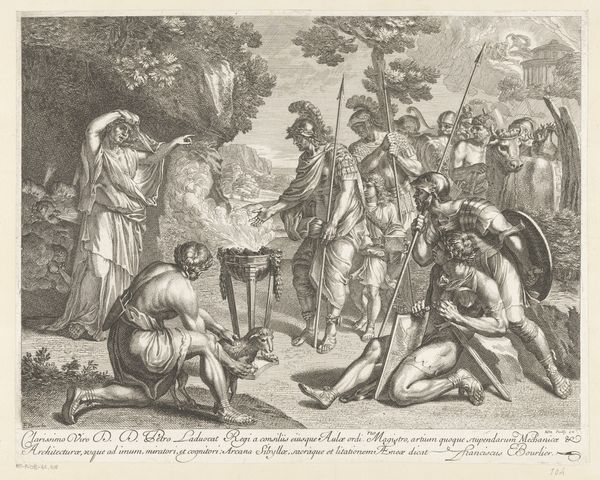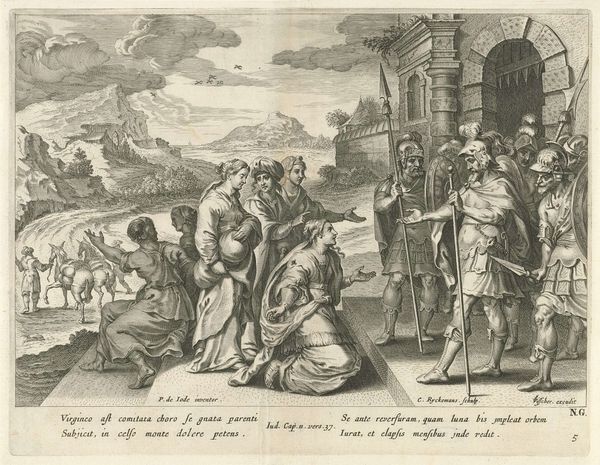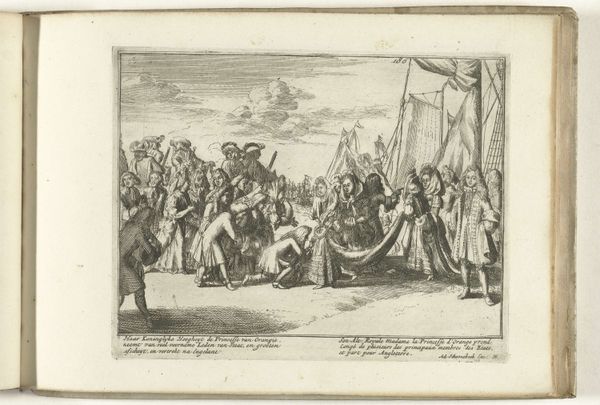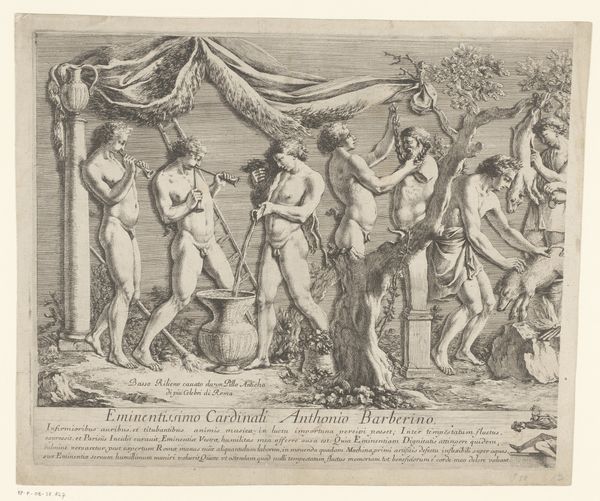
print, engraving
#
allegory
# print
#
old engraving style
#
landscape
#
mannerism
#
figuration
#
line
#
history-painting
#
italian-renaissance
#
engraving
Dimensions: height 298 mm, width 335 mm
Copyright: Rijks Museum: Open Domain
Gijsbert Van Veen created this engraving, Apollo and the Four Seasons, sometime between 1562 and 1628. At first glance, the figures arranged across the foreground draw us into a composition neatly divided between a naturalistic landscape on the left and a draped tent structure on the right. Observe how Van Veen uses contrasting textures to create depth. The smooth, fluid lines of the figures’ drapery play against the densely hatched background. The interplay between light and shadow is not merely decorative; it articulates the engraving’s deeper concern with cycles of time and transformation. The figures, possibly representing the seasons, are caught in a dance, a motif that recurs throughout art history as a symbol of cosmic order and human connection to nature. The tent structure, sharply contrasted with the organic forms of the trees, could represent the artifice of human attempts to control nature. Such contrasts invite us to consider how Van Veen destabilizes any fixed interpretation, pushing us to reflect on the complex interplay between representation and reality.
Comments
No comments
Be the first to comment and join the conversation on the ultimate creative platform.
